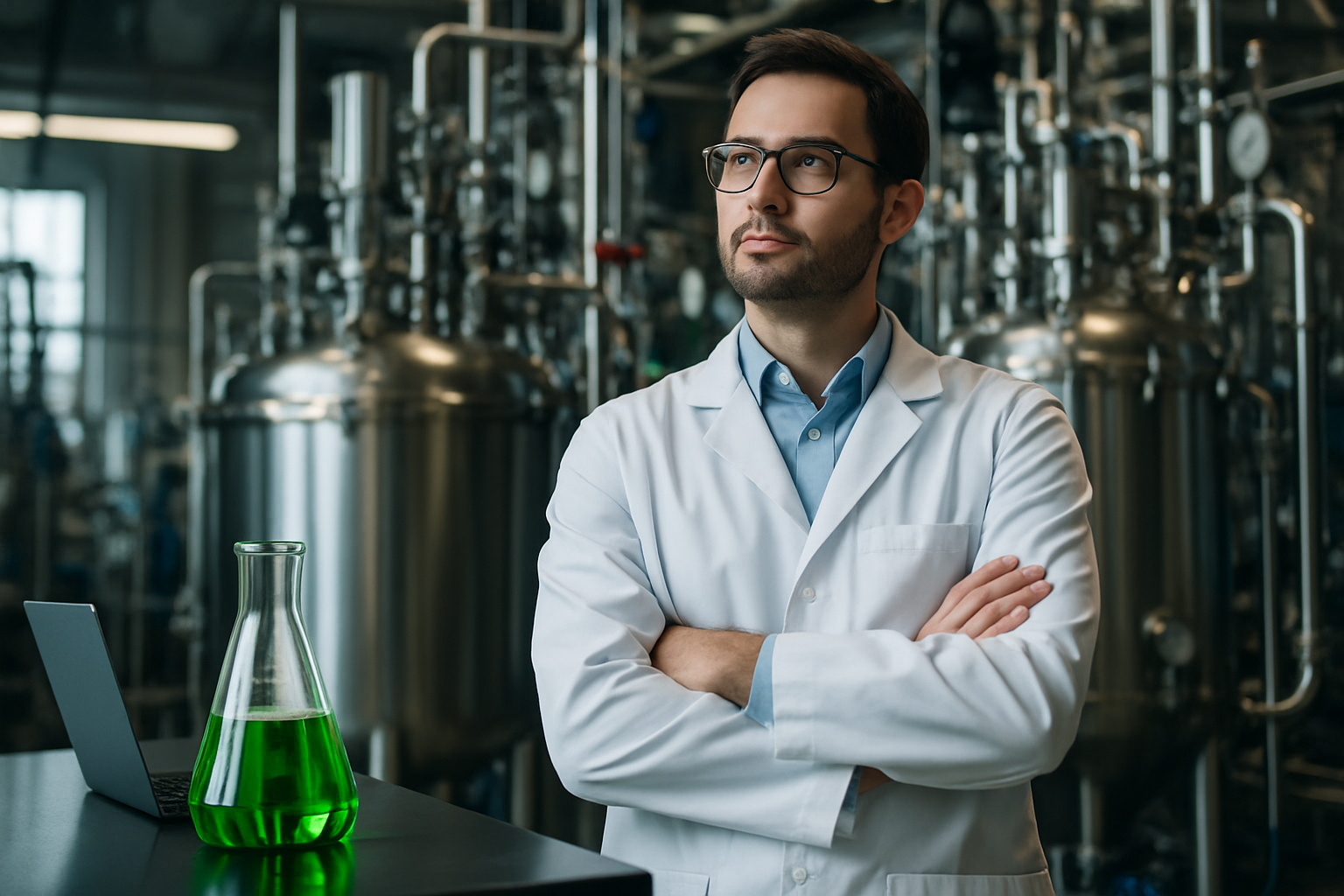Bioindustrial Manufacturing: Merging Biology and Industry
The intersection of biology and manufacturing is ushering in a new era of production capabilities. Bioindustrial manufacturing, a cutting-edge approach that harnesses biological systems for industrial applications, is poised to revolutionize how we create materials, chemicals, and products. This innovative field combines the precision of biotechnology with the scale of industrial processes, offering sustainable and efficient alternatives to traditional manufacturing methods.

The Foundations of Bioindustrial Manufacturing
Bioindustrial manufacturing finds its roots in the confluence of several scientific disciplines, including biotechnology, synthetic biology, and chemical engineering. This interdisciplinary approach harnesses the power of microorganisms, enzymes, and cellular processes to produce a wide array of products, from biofuels and bioplastics to pharmaceuticals and specialty chemicals.
The concept builds upon centuries of fermentation practices but takes them to new heights with advanced genetic engineering and bioprocess optimization techniques. By manipulating the genetic code of microorganisms or designing entirely new biological systems, scientists can create “living factories” capable of producing complex molecules and materials with unprecedented efficiency.
Advantages Over Traditional Manufacturing
Bioindustrial manufacturing offers several key advantages over conventional production methods. Firstly, it often requires less energy and produces fewer waste products, making it inherently more sustainable. Biological processes can occur at ambient temperatures and pressures, reducing the need for energy-intensive conditions common in chemical manufacturing.
Moreover, bioindustrial processes can utilize renewable feedstocks, such as agricultural residues or algae, instead of relying on finite fossil resources. This not only reduces the carbon footprint but also creates new value chains for previously underutilized biomass. The ability to produce complex molecules with high specificity and purity often results in streamlined production processes with fewer side products and purification steps.
Key Technologies Driving Bioindustrial Innovation
Several cutting-edge technologies are propelling the field of bioindustrial manufacturing forward. Synthetic biology, which involves designing and constructing new biological parts, devices, and systems, plays a crucial role. This discipline allows scientists to create custom-designed microorganisms optimized for specific production tasks.
Metabolic engineering is another pivotal technology, enabling the modification of cellular metabolic pathways to enhance the production of desired compounds. By redirecting cellular resources and optimizing enzyme activity, researchers can dramatically improve yields and efficiency.
Advanced fermentation technologies, including continuous fermentation and high-cell-density cultivation, are scaling up bioproduction to industrial levels. These techniques allow for higher productivity and more efficient use of resources, bridging the gap between laboratory discoveries and commercial viability.
Applications Across Industries
The impact of bioindustrial manufacturing spans various sectors, offering innovative solutions to longstanding challenges. In the chemical industry, bio-based processes are producing everything from commodity chemicals to specialized ingredients for cosmetics and food. The textile sector is exploring biofabricated materials, such as lab-grown leather and microbial cellulose, as sustainable alternatives to traditional fabrics.
In pharmaceuticals, bioindustrial approaches are enabling the production of complex molecules and biologics with greater precision and scalability. The energy sector is leveraging these technologies to develop next-generation biofuels and biochemicals, offering renewable alternatives to petrochemical products.
Challenges and Future Outlook
Despite its promise, bioindustrial manufacturing faces several hurdles on its path to widespread adoption. Scaling up biological processes while maintaining efficiency and product consistency remains a significant challenge. Additionally, regulatory frameworks must evolve to accommodate these novel production methods, ensuring safety and quality standards are met.
The economic competitiveness of bio-based products compared to their conventional counterparts is another critical factor. As technologies mature and economies of scale are realized, the cost-effectiveness of bioindustrial processes is expected to improve, making them more attractive to industries and consumers alike.
Looking ahead, the future of bioindustrial manufacturing appears bright. Advances in genome editing, artificial intelligence, and bioprocess engineering are set to further enhance the capabilities and efficiency of biological production systems. As industries increasingly prioritize sustainability and circular economy principles, bioindustrial manufacturing is poised to play a central role in shaping the future of production.
Insights for Embracing Bioindustrial Manufacturing
• Assess your current production processes for potential biological alternatives
• Invest in research and development partnerships with biotechnology firms
• Consider pilot projects to test bioindustrial methods in your supply chain
• Stay informed about regulatory developments in bio-based products
• Explore opportunities for valorizing waste streams through biological conversion
• Develop a long-term strategy for integrating sustainable production methods
As industries continue to evolve in response to global challenges, bioindustrial manufacturing stands out as a transformative approach that marries the ingenuity of nature with the demands of modern production. By harnessing the power of biological systems, companies can unlock new realms of innovation, sustainability, and efficiency. The journey towards a bio-based economy is just beginning, and those who embrace these technologies early stand to gain a significant competitive advantage in the markets of tomorrow.






